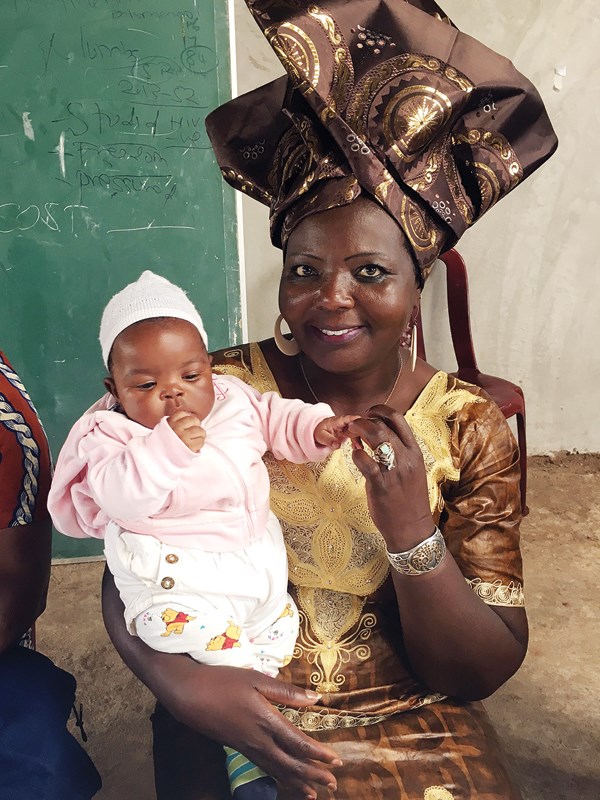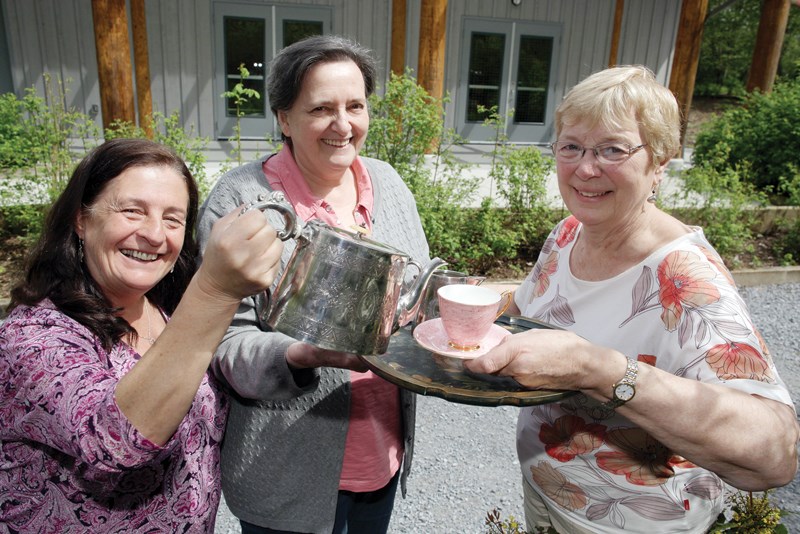Whatever you do, don’t tell mom you’re tired.
Khayanga Wasike learned that lesson as a child living in a hut that bent and broke whenever heavy rain fell or high winds swept across the western reaches of Kenya.
When she or her siblings complained of exhaustion, their mother would always offer the same rejoinder: “She would say, ‘the tired are the dead,’” Wasike recalls.
Speaking from the Lugari Community Resource Centre that she founded in Kenya, Wasike discusses the health, education, and sustainable farming initiatives that occupy her every day.
“My mom taught me that work is worship,” Wasike says. “I think I’m addicted to work,” she adds with a laugh.
Wasike left Kenya in her mid-20s to pursue a career in education in Canada. It was a good career but not the right one she says, discussing her decision to go into social work.
“I felt like that’s where my calling was,” Wasike says.
She wanted to help women and children and work with immigrants all over the world.
“So, I jumped,” she explains.
It was during those years when she crossed the Lions Gate Bridge into Vancouver each day that she met Margaret Joseph.
As a Rotary Club member Joseph had volunteered in Africa.
“We found we had a lot in common,” Joseph says.
The two shared a budding friendship. However, Wasike eventually decided her future was back in Kenya. She raised enough money to buy 2.5 acres of land to build the resource centre. And as much as she enjoyed the North Shore, she knew she needed to be in Lugari to run the centre.
Despite being separated by an ocean and most of two continents, the women stayed in touch, and on Saturday at the Corrigan Nature House on Dollarton Highway, Joseph is planning to hold a Mother’s Day tea to support the centre.
Tickets are $35. Joseph says $15 will go towards the cost of renting the hall as well as the tea, food and entertainment, leaving $20 for the Willing Hearts International Society of Canada.
“If you want to do something for your mother for Mother’s Day or you want to take your grandma out, it’s a very pleasant afternoon,” Joseph says. “Many of us are very lucky in our lives … so I’m asking people to also give a little so that other people’s lives can be improved.”
The tea matters a lot, according to Wasike.
“They bring awareness of what is happening all over the world because sometimes people think we are in this bubble where nothing will affect us,” she says.

The event lets people understand a little more about Africa and what it takes to bring meaningful change, she says.
In the immediate future, the plan is to work with the charity Days for Girls to make reusable menstrual pads for young students.
“This is our new baby,” Wasike says, explaining she’s been thinking about it since buying a sewing machine from a shop in Victoria in 1999.
A 2014 report from the United Nations Educational, Scientific and Cultural Organization found approximately 10 per cent of African girls don’t attend school during menstruation.
“You can’t talk about periods here,” Wasike says. “It’s one of those things that you have to hide.”
However, the reusable pads should allow students “a more dignified way of going through their cycle” while reducing the burden on a sewage system which Wasike says has been choked by disposable pads.
Wasike also hosts an annual leadership training conference for women between 14 and 18, inviting university graduates and professional women to talk about leadership, governance, personal health and financial literacy.
The conference attracts women from around Lugari, who are encouraged to initiate projects in their own communities.
Lugari, a sub-county of Kakamega, has a population of approximately 300,000, and the resource centre is the “only place where everybody congregates,” Wasike says.
Wasike also oversees demonstrations on farms, where neighbours “who don’t even attend class” show up to see different farming and composting techniques.
The region is still struggling, and Wasike says she sees children facing the same poverty that she grew up in.
“Every day I have these village children that I have to meet, and I stop and I pick them up and I look at their eyes and you can see them looking into my eyes and going … what are you going to do for us today?” she says.
Those children, Wasike says, are, “my employers, they are my managing directors, they’re my CEOs … they’re my everything.”
She has no regrets about moving to Kenya, she says, “unless I have malaria,” she adds with a laugh. After all, she acknowledges, her life owes much to the kindness she encountered in her youth.
“And if I could do something to give back, why not if I’m still alive and kicking? Why not?” she asks. “I’m not tired yet. I’m not dead yet.”
The tea is scheduled to take place between 3 and 5 p.m.
For more information visit whisca.eventbrite.com or call 778-997-9442.



